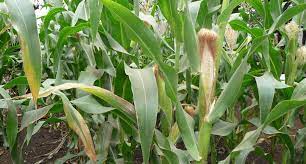Clove Farmers in Morogoro Region to Benefit More
Kilimokwanza.org
In Morogoro, a revolution in agriculture is underway. Clove farming, once a modest part of the region’s diverse agricultural sector, is now set to take center stage. This transformation was marked by a significant event on January 25, 2024, where Dr. Ally Musa Ally, the Regional Administrative Secretary of Morogoro, led a pivotal meeting with spice farming stakeholders at the Regional Commissioner’s Office.
The emphasis on clove cultivation is not without reason. Morogoro, known for its fertile soil and favorable climate, presents an ideal setting for growing cloves, a spice prized for its aromatic and medicinal properties. Historically, cloves in Tanzania have been predominantly associated with the Zanzibar archipelago. However, Morogoro’s entry into this sector signals a new era of diversification and economic potential.
Training and Empowerment: Key to Sustainable Growth
A significant step towards this agricultural shift was the three-day training session for farmers in Zigi, Muheza District. These sessions, aimed at empowering local farmers with the necessary skills and knowledge to efficiently grow clove seedlings, mark a departure from traditional, less scientific methods. With over four hundred thousand seedlings distributed, the impact is set to be substantial.
Environmental Conservation and Clove Farming
The initiative also extends to environmental conservation. The residents in the Uluguru mountain ranges are being encouraged to plant clove trees. This move is strategic, leveraging the environmental benefits of clove trees, such as soil stabilization and microclimate regulation, to protect and nurture the local ecosystem.
Economic Implications and Value Proposition
Clove farming in Morogoro opens multiple avenues for economic growth. Firstly, it diversifies the agricultural base of the region, reducing dependence on traditional crops and increasing resilience against market fluctuations. Cloves, being a high-value crop, can significantly enhance farmers’ incomes.
Moreover, the development of this sector can stimulate related industries, such as processing, packaging, and distribution, creating additional employment opportunities. The potential for export is considerable, given the global demand for cloves in culinary, pharmaceutical, and cosmetic industries.
Challenges and Future Prospects
While the prospects are bright, challenges such as market access, quality control, and sustainable farming practices need to be addressed. Continuous training and support from government and non-governmental agencies will be crucial.
The involvement of key figures like Dr. Rosalia Rwegasira and Ms. Beatrice Banzi, representing the economic and agricultural development sectors, underlines the commitment at various administrative levels to support this venture.


